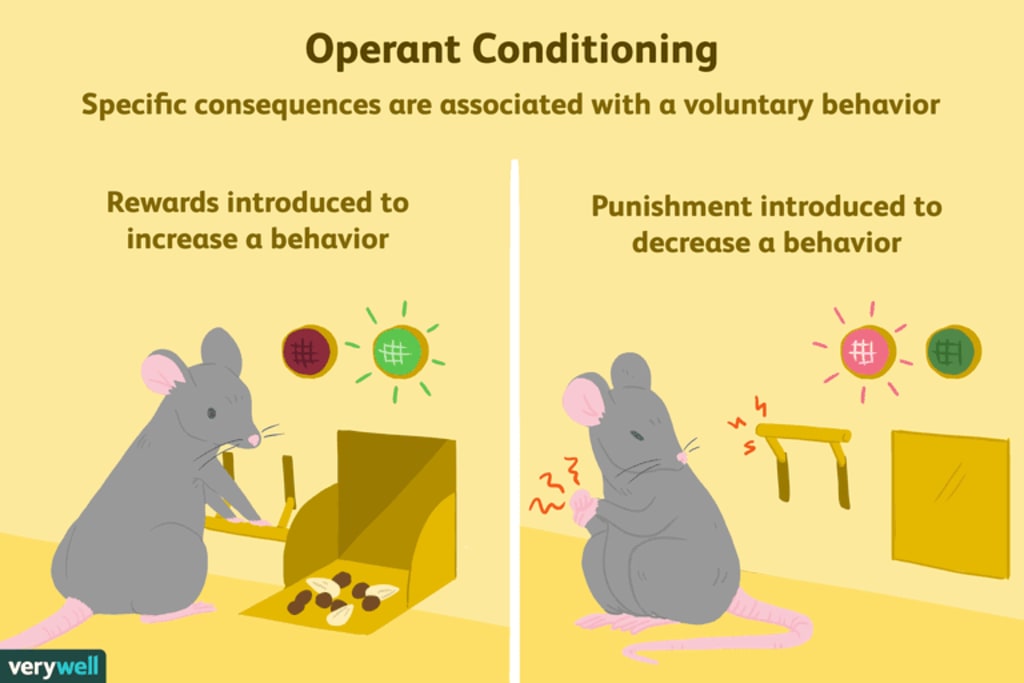Operant Conditions and Behavioral Modifications
A Study

Operant Conditions and Behavioral Modifications
Operant conditions are rewarding or punishing others for their behaviors. My work uses this as a method to help everyone see what the right or wrong behavior is. When the company sees someone doing a phenomenal job or exceeding all expectations of the company they are rewarded or that behavior. These rewards range from employee of the month clear down to prizes you can choose from. This can help employees continue that behavior. “Positive reinforcement strengthens a behavior by providing a consequence an individual finds rewarding” (McLeaod, 2018). When employees are showing negative behavior, our company gives a punishment. These punishments are called write ups. Everyone is given three chances with the write ups before termination is an option the company has. This shows the employee what behavior is not allowed and how they can change this behavior. This also allows the employee a chance to change the behavior.
Behavioral modification is when someone tries to change someone’s behavior with techniques and reinforcement. This can be rewarding someone for positive behavior and punishing them for negative behavior. This is something that is used to help treat both adults and children. It can help with issues such as OCD, ADHD, bed-wetting, and many others. The rewards and punishments are usually set up by the therapist and clients. Anyone who is wanting to change their overall outcome into something positive can use this method to help them modify those behaviors. An example would be with a prisoner who is close to their release date. To help the prisoner, change his behavior and not return a therapist may use behavioral modification method to do so. This can help the prisoner understand what they did was wrong and see what those punishments are and can allow them to start to change that behavior for the better and give them positive reinforcement for that positive behavior.
When I was working fast food as a shift lead this was a method that my general manager had taught me. We wanted to make sure that our employees were having positive behaviors. When we would see someone using negative behavior we would give them a negative reinforce such as write ups. We would sit the employee down explain to them what was done wrong and how they can change that for the better and help them overall improve their outcome. Our positive reinforcement would be a free meal from the store and from another store or even a gift card. This helped a lot of the employees to change their overall behavior inside and outside of work.
With the company I work for now we use these methods to help our employees. Our goal is to see everyone be successful. When we see negative behavior, those employees are given write ups. We explain what the behavior was and how it was a negative behavior. We also want to give them the chance to change that behavior, so we explain what they could do differently. I have seen this help many employees take that negative behavior and turn it around into positive behaviors. When our employees show positive behavior, we reward them for that. These rewards can be gift cards, free snack from the break room, a coach taking calls for that employee, and much more. We give our employees tons of rewards for that positive behavior. We want them to know that their behavior is noticed and appreciated so we give out those rewards. This helps the employees see what they are doing is positive, know they are appreciated, and help those struggling see what rewards they could get for positive rewards.
References
McLeaod, S. (2018, October 3). Skinner - Operant Conditioning. Retrieved from https://www.simplypsychology.org: https://www.simplypsychology.org/operant-conditioning.html






Comments
There are no comments for this story
Be the first to respond and start the conversation.